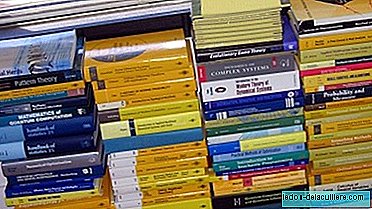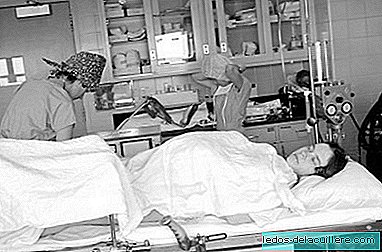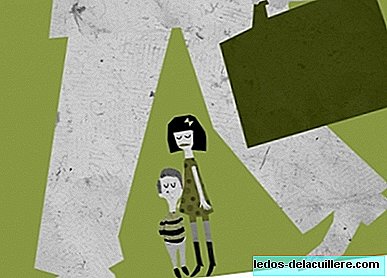
The acquisition of textbooks is one of the most important expenses of the beginning of the course in Primary and Secondary Education students. Without going any further, the books of my daughter who has started second year of Primary have cost (with the discount) a little more than 200 euros, for the most I have asked for most of them, and we have only bought books of three subjects.
This year, practices related to the loan and reuse initiatives, often driven from the Public Administrations themselves; although the suppression of aid in some Autonomous Communities has not provoked sufficient response from schools or Town Halls. Of course, as always, personal relationships continue to work perfectly in these cases, it is at least the experience in the municipality where I reside, in which many fathers and mothers have participated in a kind of improvised 'chain' of private loans from books. The Spanish Confederation of Student Parent Associations tells us that in Andalusia and Navarra they follow the loan and reuse model, and for the cycles in which books are renewed, a book check is given to families for the entire amount.
In the Canary Islands, Catalonia or Extremadura, the gratuity is partial, because although the centers lend part of the books (after having collected them at the end of the previous year), others are acquired by families. On the other hand, after the cuts in Education, the aid has been reduced for this course.
Some of the efforts by the Administrations are the creation of catalogs of good practices in reuse (in Asturias), or regulations that prohibit centers from forcing families to buy “booklets” of exercises, avoiding them to face a extra expense at the beginning of the course (in Andalucia)
In Communities such as Castilla León, Ceuta, Asturias, Galicia, Aragón, Cantabria and Murcia, direct aid is maintained, but these are insufficient for the purchase of textbooks, and in some cases, scholarships have been called for a very small percentage of schoolchildren. Reuse programs have also been launched.
We finally arrive in Madrid, the Balearic Islands or the Valencian Community, where the aid has been suppressed, and now it will be very punctual for families in situations of extreme need.
As things stand, I consider that the loan and reuse can become a very suitable option that would allow some families to save a lot of money, and others to access the books. In addition - and since it is not just about spending less - it teaches children to take care of books and keep them in good condition, because later they can be for the neighbor, friend, sister or cousin. It is a consumer education option with which they learn that everything we need is not achieved with money.
The coverage will never be total because periodically the books must be updated, and even if schools or local entities intervene, it is very difficult to reach all students, but the most important thing is to generate a movement that allows this model to work well, and at a particular level, teach children responsibility.
Of course, defending the loan and reuse programs do not justify in any way the terrible cuts that public education is undergoing in our country (which in addition to public must be free), perhaps the issue of textbooks is one of the most flashy, but also attention should be drawn to the suppression of tutorials, therapeutic pedagogy teachers, cycle coordinators, etc. That is more serious, and a direct attack on the academic progress of the students.












